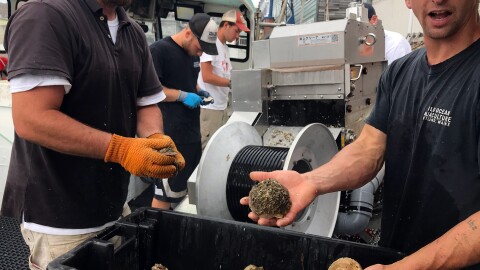The early analysis that an industry group released at a seafood conference in California this week finds that Maine's lobster harvest ticked up in 2018. Using industry data, the National Fisheries Institute estimated that Maine fishermen landed some 119 million pounds of lobster last year, up from roughly 111 million pounds in 2017.
The state's lobster catch hit an all-time high of more than 130 million pounds in 2016, capping a long-term trend that has coincided with warming temperatures in the Gulf of Maine. Scientists say some decline is inevitable, as temperatures rise beyond the optimum for lobster reproduction.
DMR will release the official landings data for all commercial Maine seafood at the end of February.
Originally published Jan. 17, 2019 at 4:58 p.m. ET.
EDITOR'S NOTE: In an earlier version of this story, the Department of Marine Resources provided information it now says was inaccurate. Agency spokesman Jeff Nichols says that while preliminary landings data show that the 2018 crop will be more than 100 million pounds, whether final numbers will reach above 110 million pounds remains to be seen. DMR will release its officials landings data in late February.



